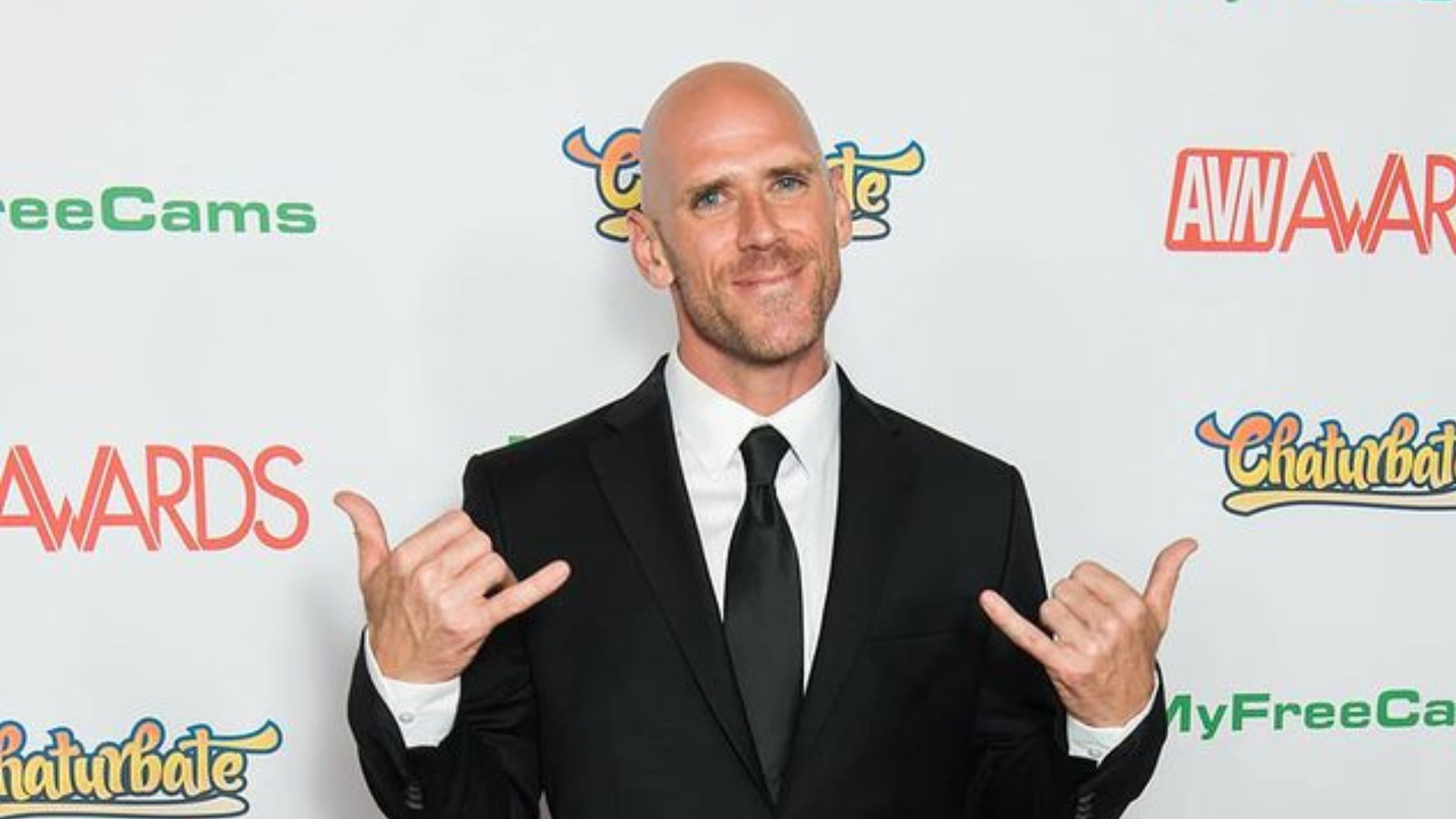Exploring John's Crucial Role And The World's Burden
There's a really interesting figure from ancient times, a man whose story, you know, still resonates with people today. We're talking about John, a person whose life and message, quite frankly, had a massive impact on the course of history. His connection to the concept of "john sins" isn't about him being a wrongdoer, but rather about his powerful message regarding the world's deep-seated problems and the path to real change.
He was, in a way, a messenger, someone sent with a very specific purpose. His whole existence, it seems, was about pointing people toward something truly significant. It's almost like he was a spotlight, shining a light on a coming event, preparing everyone for a major shift in how things were understood, especially when it came to human failings and finding a way forward.
So, we'll take a closer look at this John, exploring his unique calling, what he had to say about the burdens people carried, and how his words continue to offer a fresh perspective on dealing with the challenges of life, even in our own time, in some respects.
Table of Contents
- John's Life and Mission
- The Lamb of God and the World's Sin
- John's Humility and Purpose
- John's Legacy Today
- Frequently Asked Questions About John
John's Life and Mission
There was, you know, a very particular person sent from God, and his name was John. His arrival, apparently, wasn't by chance; it was part of a bigger plan, a divine arrangement, if you will. This John, in a way, had a job to do, a very important one that would shape the understanding of many, many people. He was, as a matter of fact, a key figure in a story that has been told and retold for centuries.
Who Was John?
This John, who we're talking about, is the one known in ancient texts as John the Baptist. He's a figure with deep roots in the New Testament. His purpose, quite simply, was to prepare people. He would perform a special kind of washing, a ritual in the Jordan River, encouraging people to turn from their old ways. This act of washing, you see, was a sign for people to reconsider their actions and truly change their hearts, which is that kind of profound shift in thinking.
He was, essentially, a forerunner, someone who went ahead to lay the groundwork. His message, you know, helped prepare the way for Jesus, creating a receptive environment for new teachings. This preparation, frankly, was a crucial part of the unfolding story, setting the stage for what was to come, a bit like clearing the path before a big parade.
John's Personal Details and Background
While the provided text doesn't give us all the minute details of John's life, it does paint a clear picture of his identity and mission. He's not just some random person; he's a man with a divine assignment, which is quite something. Here's a brief look at what we gather about him, you know, from the words given to us.
| Name | John (also known as John the Baptist or John the Washer) |
| Origin | New Testament biblical figure |
| Primary Role | Witness, forerunner, one who prepared the way |
| Key Activity | Performing washings (baptism) in the Jordan River, calling people to change |
| Relationship to Jesus | Sent ahead of Jesus; identified Jesus as the one who takes away the world's burdens |
His name, John, has become, you know, a very common one, just like "David" or "Peter." This popularity, apparently, grew from his significance in ancient texts. People just started using it, and it stuck, becoming a familiar sound in many languages, which is that kind of widespread acceptance.
A Witness to the Light
John's main job, it turns out, was to be a witness. He wasn't the main event, you see, but he was there to point to it. He came to tell people about "that light," which is a really powerful way to put it. His whole purpose was to testify, to speak clearly and publicly, about this guiding presence, so that everyone who heard him might actually come to believe through his testimony. It's almost like he was holding up a sign, directing everyone's attention.
He was very clear about his own place, too. He himself, quite honestly, was not "the light." He didn't want anyone to misunderstand that. His role was simply to bear witness, to confirm the existence and importance of this light, which is that kind of honest self-assessment. He was there to make sure people understood where the true source of guidance was, not to claim it for himself, you know.
This idea of being a witness is, in a way, a very active role. It means seeing something, experiencing it, and then sharing that truth with others. John did this with great conviction, apparently, shouting to the crowds, making sure his voice was heard. He was, in fact, quite passionate about his message, which is that kind of deep commitment.
The Lamb of God and the World's Sin
One of the most powerful moments involving John, you know, happened when he saw Jesus approaching. It was a pivotal instant, a moment of profound recognition, you could say. What John declared then, frankly, speaks directly to the core idea of "john sins" – not John's own wrongdoings, but his identification of the solution to humanity's collective problems. It's that kind of clear statement of purpose.
Identifying the Savior
The very next day, John saw Jesus coming toward him. And what he said, you know, was incredibly significant. He exclaimed, "Behold the Lamb of God, which taketh away the sin of the world." This statement, you see, is absolutely central to understanding John's mission and the broader message. It's almost like he was making a grand announcement, a revelation for all to hear.
When John referred to Jesus as "the Lamb of God," he was using a very specific and meaningful image from their shared history. This image, apparently, would have instantly brought to mind ideas of sacrifice and deliverance, of a pure offering made to deal with deep-seated issues. It's that kind of powerful symbolism, really, that communicates so much in just a few words. He was, in fact, pointing to a very ancient concept, giving it new meaning.
This declaration, moreover, wasn't just a casual observation. It was, quite frankly, a profound spiritual insight. John, who had been sent from God, was now confirming the identity of the one he had been preparing the way for. He was, in a way, completing his part of the divine plan, which is that kind of precise fulfillment.
Taking Away the World's Burden
The phrase "taketh away the sin of the world" is, in some respects, incredibly impactful. It speaks to a universal problem, a shared human condition of imperfections and wrongdoings that affect everyone. John wasn't talking about a single person's mistakes, but about the collective weight, the accumulated burdens of all people, you know, across time and place. It's that kind of sweeping statement about humanity's condition.
This concept suggests a removal, a lifting, a cleansing of these burdens. It implies a solution, a way to be freed from the consequences and effects of these failings. John's statement, frankly, offers a profound hope, a promise that there is a way for humanity to be reconciled and made right. It's almost like seeing a heavy load being lifted from someone's shoulders, you know, bringing immense relief.
So, when we talk about "john sins," we're not implying that John himself was a source of widespread wrongdoing. Instead, the phrase points to his crucial role in identifying the one who could address the very real problem of human failings on a global scale. He was, in fact, the one who announced the remedy, which is that kind of critical function.
John's Call to Change
John's mission, you see, wasn't just about pointing to Jesus. It also involved a direct appeal to the people he met. He performed a washing ritual, a baptism, in the Jordan River, and this was tied to a call for people to change their ways. He was urging them to reconsider their actions, to turn away from what was wrong, and to seek a new path, which is that kind of strong encouragement.
This call to change, or repentance, was a necessary step, a preparation for the arrival of the one who would deal with the world's burdens. It was, in a way, a personal cleaning up, getting ready for something truly new. John's message, apparently, was straightforward: acknowledge your shortcomings, turn from them, and be ready for the one who offers a deeper solution. It's that kind of practical advice for spiritual readiness.
So, his work, you know, directly related to the concept of "sins" by guiding people to confront their own failings and prepare for the ultimate answer. He wasn't just a prophet; he was a practical guide, showing people how to get ready for a profound spiritual transformation, which is that kind of hands-on approach to faith.
John's Humility and Purpose
A really striking aspect of John's character, you know, is his remarkable humility. Despite his significant role and the crowds that followed him, he never lost sight of his true purpose. He was, in fact, very clear about who he was and, perhaps more importantly, who he was not, which is that kind of genuine self-awareness.
Not the Messiah
John made it absolutely clear, you see, that he was not the Messiah, the long-awaited deliverer. He stated this plainly, saying, "I am not the Messiah." This was a crucial point, as some people might have mistakenly thought he was the one they had been waiting for. His directness, apparently, left no room for confusion, which is that kind of honest communication.
He wanted everyone to understand that his role was different, that he was simply a messenger, a herald. He wasn't the ultimate answer; he was just pointing to it. This humility, frankly, is a powerful lesson in itself, showing a person completely dedicated to a higher purpose without seeking personal glory. It's almost like he was saying, "Don't look at me; look at the one coming," you know.
His words, in fact, were a testimony to this truth. He openly told people, "you yourselves can testify that I said, ‘I am not the Messiah but am sent ahead of him.’" This shows, you know, his consistent message and his integrity. He never wavered from his true identity and mission, which is that kind of steadfast commitment.
Sent Ahead
John often spoke about someone coming after him, someone far greater. He said, "this is the one I was talking about when I said, ‘Someone is coming after me who is far greater than I am, for he existed long.’" This statement, you see, highlights the profound difference in their origins and significance. John was of this world, but the one coming was from a different, eternal realm, which is that kind of deep theological point.
His entire existence, in a way, was about being "sent ahead." He was the advance party, preparing the way, making things ready for the arrival of someone of immense importance. This role, apparently, was given to him from heaven, as he himself acknowledged: "a person can receive only what is given them from heaven." It's that kind of divine appointment, really.
So, John's purpose was completely tied to this preparation. He wasn't building his own following or seeking personal fame. His focus was entirely on the one who was to follow, the one who would truly address the "sin of the world." He was, in fact, a selfless servant, which is that kind of admirable quality.
John's Legacy Today
The story of John, you know, still holds a lot of meaning for people living in our modern world. His message about facing up to problems and seeking a way to overcome them, frankly, remains very relevant. Even today, on this day, the 17th of May, 2024, people are looking for answers to the challenges they face, and John's ancient words still offer a fresh perspective on finding peace and making things right. It's almost like his voice echoes through time, you know.
His example, you see, teaches us about the importance of being a clear voice, of speaking truth, even when it might be difficult. He showed what it means to be truly dedicated to a purpose beyond oneself, to point to something greater. This kind of unwavering focus, apparently, is something many people admire and try to emulate in their own lives, which is that kind of inspiring quality.
And the core of his message, about the "Lamb of God who takes away the sin of the world," continues to be a central idea for countless individuals. It speaks to a deep human need for forgiveness, for a fresh start, and for a way to deal with the burdens we carry. This enduring message, frankly, offers comfort and direction to those seeking a path to inner peace and reconciliation. It's that kind of profound spiritual truth.
So, John's influence, you know, extends far beyond his own time. His story reminds us that sometimes the most important role is to prepare the way for something bigger, to be a witness, and to humbly point others toward hope and transformation. It's a powerful reminder, really, of how one person's dedicated life can shape the thinking of generations. Learn more about John's historical impact on our site, and you can also find more information about his background on this page.
Frequently Asked Questions About John
People often have questions about John, his life, and his important role. Here are some common inquiries, you know, that come up when discussing this significant figure.
Was John the Baptist a sinner?
The provided text doesn't say John himself committed "sins" in the sense of wrongdoings that needed forgiveness from Jesus. Instead, it highlights his role as a witness sent from God, whose purpose was to testify about the "light" and to identify Jesus as the one who "taketh away the sin of the world." His message was about others changing their ways, not about his own personal failings, which is that kind of distinction.
What was John's main message?
John's main message, you know, was a call for people to change their hearts and actions, to prepare for the coming of someone far greater. He testified about "the light" and very clearly identified Jesus as "the Lamb of God, which taketh away the sin of the world." His whole purpose, apparently, was to be a witness and to point people toward Jesus, which is that kind of singular focus.
Why is John called the forerunner?
John is called the forerunner because he was "sent ahead" of Jesus. His mission, you see, was to prepare the way for Jesus, making people ready to receive his message. He wasn't the Messiah himself, but he was the one who announced the Messiah's arrival and began to gather people who were open to new teachings. It's almost like he was clearing the path, you know, for a very important guest.

Johnny Sins Wikibio

Johnny Sins - Biographies, Galleries, Wallpapers, Photos And Pictures

Johnny Sins Net Worth - The Most Educated Man On The Planet